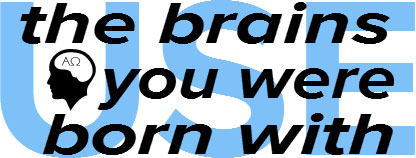Chapter 51 = Will the word racism have any meaning for them at all? Even in my day the meaning has changed. What I always understood to be a simple expression of the races’ inability to get along together has become for my contemporaries—or most of them, I daresay—a war cry, a call to arms, a crime against humanity and the dignity of man.
Chapter 40 – The blacks had decided to take over the Café Odéon, and had proceeded to make life miserable for the whites who frequented it. Now, it’s a known fact that racism comes in two forms: that practiced by whites—heinous and inexcusable, whatever its motives—and that practiced by blacks—quite justified, whatever its excesses, since it’s merely the expression of a righteous revenge, and it’s up to the whites to be patient and understanding. There was even that time, in Paris, when an American “Black Power” leader came to the Cité Universitaire to speak at a student rally, and began his speech by shouting: “Now listen, I see we got some black brothers and sisters standing, and some white folks sitting. Come on, white folks, let’s give us those seats!” And the most amazing part of it was that the ones he was talking to got up, meek as lambs, while the others applauded.
Chapter 47 – It was then they remembered that Boris Vilsberg was still there. Silent and forgotten, he had listened intently to all the proceedings, numbed into a kind of weird waking trance. As if confronted again and again, by his very own presence. As if an endless string of Vilsbergs—with his voice, his face—had approached the microphone, one by one. Saying all those things he had mouthed through the years, over the airwaves at RTZ, no better or worse than the nonsense they were spouting, and certainly no brighter. He could see that now. (Though, of course, as a newsman he was slightly more informed.) Good God! That’s all his life had been. Just words, words, words! … And finally, when someone turned to him and asked if he had anything to add—with a semblance of the respect the disciple owes the master—he answered in a whisper: “No, nothing, thank you. Nothing …” No doubt the most meaningful opinion of his career
Chapter 15 – To claim that the news of the fleet’s departure caused any great alarm in the Western World when it first became known, would be plainly untrue. Which is doubtless why there was no lack of clever folk, willing, from the start, to spread endless layers of verbal cream, spurting thick and unctuous from the udders of their minds. The obliging bovines of contemporary Western thought, tails all aquiver, acquiesced with delight to the daily milking, especially since, for the moment, there was no cause to think that a serious problem was actually at hand. To appreciate the West’s opinion of the refugee fleet—or, for that matter, of anything new and unfamiliar—one essential fact must be borne in mind: it really couldn’t give less of a damn. Incredible but true. The more it discovers about such things, the more fathomless its ignorance, feeble its interest, and vulgar its own self-concern. The more crass and tasteless, too, its sporadic outbursts, fewer and farther between. Oh yes, to be sure, it indulges in flights of sentiment now and again, but cinema style, like watching a film, or sitting in front of the TV screen, poised for the serial’s weekly installment. Always those spur-of-the-moment emotions or secondhand feelings, pandered by middlemen. Real-world drama, served in the comfort of home by that whore called Mass Media, only stirs up the void where Western opinion has long been submerged. Someone drools at a current event, and mistakes his drivel for meaningful thought. Still, let’s not be too quick to spit our scorn its way. Empty drivel indeed, but it shows nonetheless how reading the papers or watching the news can provoke at least the appearance of thinking. Like Pavlov’s dog, whose slobber revealed the mechanics of instinct. Opinion shakes up its sloth, nothing more. Does anyone really believe that the average Western man, coming home from his ofiice or factory job, and faced with the world’s great upheavals, can eke out much more than a moment’s pause in the monumental boredom of his daily routine? Even Worker Power, that saving grace of our society today, is nothing but a parlor game, and played in a parlor too shabby and worn to stand up to more serious frolics. Risk a few, and the floor will cave in and go crashing to bits. The Moon, Biafra, a murderous earthquake, a campaign against pollution, a six-day war, a Bay of Pigs, the death of a Mao—mere Christmas parties one and all, with the great thoughtless void suddenly wreathed in flowers, and tooting its two-penny whistle. For a little while no one is bored, which is something at least. Quite a bit, in fact, if only it would last! But life isn’t always Sunday, and we can’t have famine in Pakistan or war in Israel every day of the week. (Thank Heaven, by the way, for the Israelis, those entertainers of the Western World. No danger of getting bored as long as they’re on stage. Our jokers can all go to bed and rest easy. When they wake up next morning their café au lait will be steaming, brisk and fresh, to the boom of Israeli guns …) But give a damn? Never! What for? And so, when the first news helicopter flew low over the fleet, off Ceylon, and got a worldwide scoop with a series of staggering pictures, what do you suppose our Western joker thought? That his life was in danger? That time had just started his countdown to death? Not a bit. All he thought was that now, as the fleet limped along on its hopeless course, strewing corpses in
